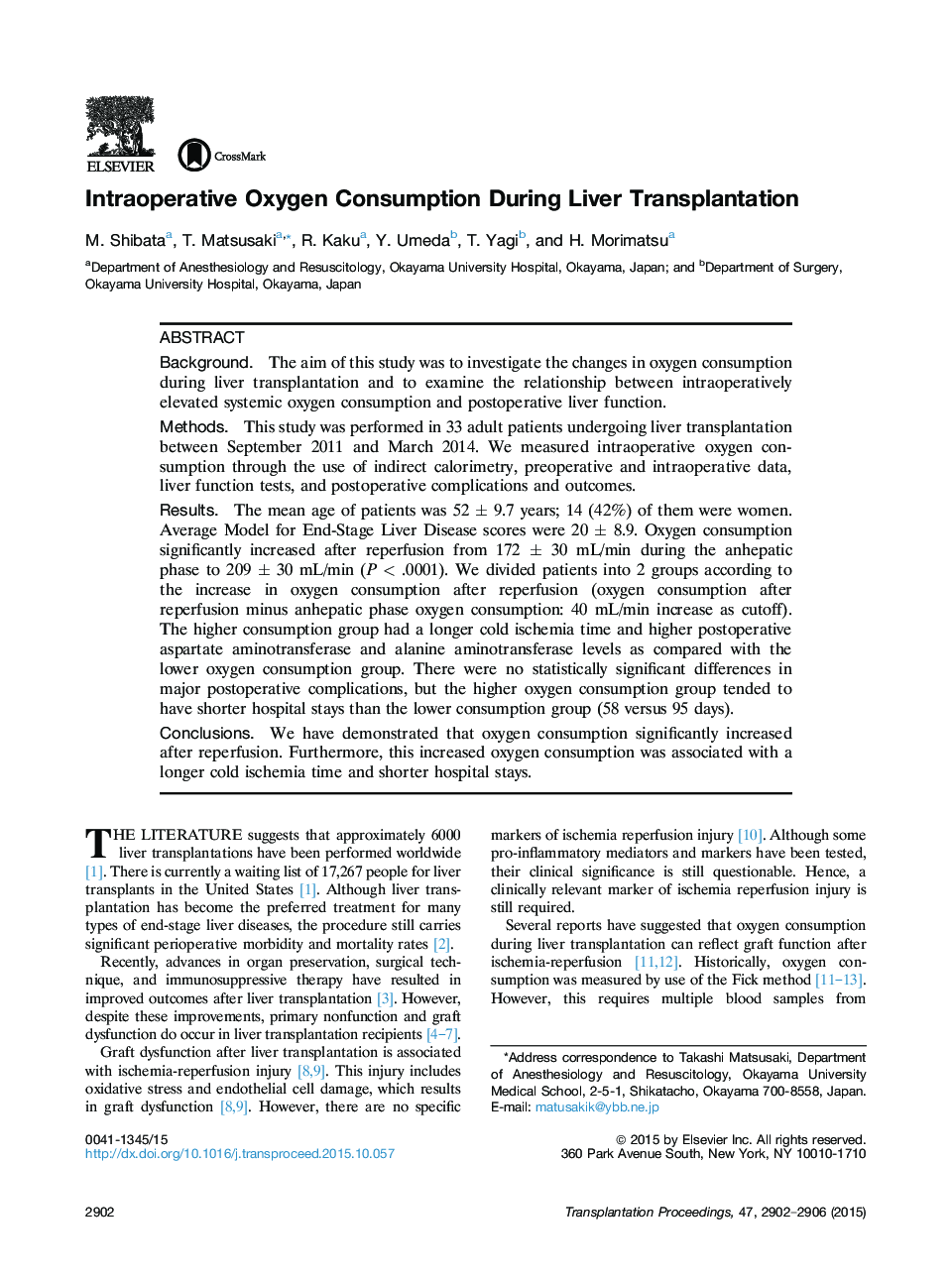| Article ID | Journal | Published Year | Pages | File Type |
|---|---|---|---|---|
| 4255842 | Transplantation Proceedings | 2015 | 5 Pages |
•The tendency for intraoperative oxygen consumption during liver transplantation was clarified with the use of indirect calorimetry.•This increased oxygen consumption after reperfusion reflected the liver graft injury during the early phase.•Longer ischemic time might be associated with the increased oxygen consumption.
BackgroundThe aim of this study was to investigate the changes in oxygen consumption during liver transplantation and to examine the relationship between intraoperatively elevated systemic oxygen consumption and postoperative liver function.MethodsThis study was performed in 33 adult patients undergoing liver transplantation between September 2011 and March 2014. We measured intraoperative oxygen consumption through the use of indirect calorimetry, preoperative and intraoperative data, liver function tests, and postoperative complications and outcomes.ResultsThe mean age of patients was 52 ± 9.7 years; 14 (42%) of them were women. Average Model for End-Stage Liver Disease scores were 20 ± 8.9. Oxygen consumption significantly increased after reperfusion from 172 ± 30 mL/min during the anhepatic phase to 209 ± 30 mL/min (P < .0001). We divided patients into 2 groups according to the increase in oxygen consumption after reperfusion (oxygen consumption after reperfusion minus anhepatic phase oxygen consumption: 40 mL/min increase as cutoff). The higher consumption group had a longer cold ischemia time and higher postoperative aspartate aminotransferase and alanine aminotransferase levels as compared with the lower oxygen consumption group. There were no statistically significant differences in major postoperative complications, but the higher oxygen consumption group tended to have shorter hospital stays than the lower consumption group (58 versus 95 days).ConclusionsWe have demonstrated that oxygen consumption significantly increased after reperfusion. Furthermore, this increased oxygen consumption was associated with a longer cold ischemia time and shorter hospital stays.
